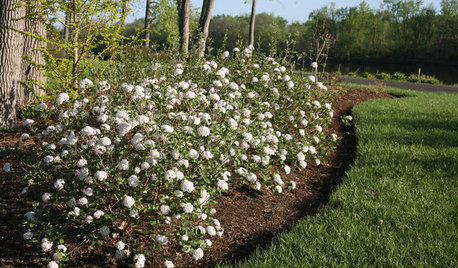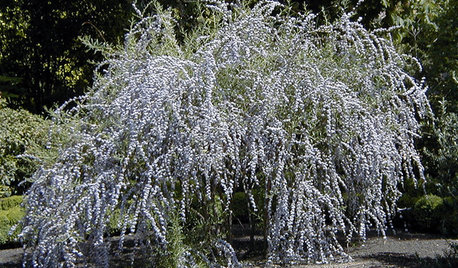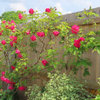research on bacterial leaf spot of shrub roses
henry_kuska
14 years ago
Related Stories

GARDENING GUIDES10 Drought-Tolerant Shrubs That Thrive in Full Sun and Reflected Heat
Got a hot spot in your garden where plants often die? Try these tough shrubs that add beauty while shrugging off the heat
Full Story
FALL GARDENING9 Deer-Resistant Flowering Shrubs to Plant This Fall
These exquisite shrubs will attract your attention but won’t tempt the deer that roam your neighborhood at night
Full Story
GARDENING GUIDES8 Native Shrubs for Year-Round Bird Feeding
It’s not just about berries. These plants provide insects for birds and seasonal interest for gardeners
Full Story
GARDENING AND LANDSCAPINGVase Shapes Set Shrubs Apart
Billowing on top and slender on the bottom, shrubs in a vase shape showcase blooms and foliage to perfection in the landscape
Full Story
GARDENING GUIDES6 Wonderfully Easy Roses for Any Gardener
Look like an expert even if you're just starting out, with these low-maintenance gems of the rose world
Full Story
GARDENING GUIDESGreat Design Plant: Callirhoe Involucrata Wakes Up Hot Garden Spots
Give a dry and sunny garden a jolt of violet-pink color summer to fall — and watch bees and butterflies flock to the nectar
Full Story
WINTER GARDENINGPruning Secrets for Exquisite Roses
Encourage gorgeous blooms year after year with this time-tested advice on how to prune your rosebush in winter for health and shape
Full Story
GARDENING GUIDES6 Captivating Roses for an Alluringly Fragrant Garden
Perfume your garden with aromas from richly spicy to lightly sweet, without sacrificing an inch of color
Full Story
GARDENING GUIDESGreat Design Plant: Knock Out Roses
As glorious as their high-maintenance kin for a fraction of the work, Knock Out roses make even beginners look like garden stars
Full Story
LANDSCAPE DESIGNMake Your Roses Even More Beautiful With These Companion Plants
Nourish your rosebushes and create a visual feast with these 7 classic and unexpected plant pairings
Full Story




karl_bapst_rosenut
jont1
Related Discussions
Shrub or Shrub like Rose for Ugly Spot in my Yard!
Q
Aloe - Bacterial Leaf Spot, Insect Nibbles, or Something Else?
Q
Bacterial leaf spot?
Q
Black spots on begonia leaves - bacterial? Fungal?
Q
henry_kuskaOriginal Author
jont1